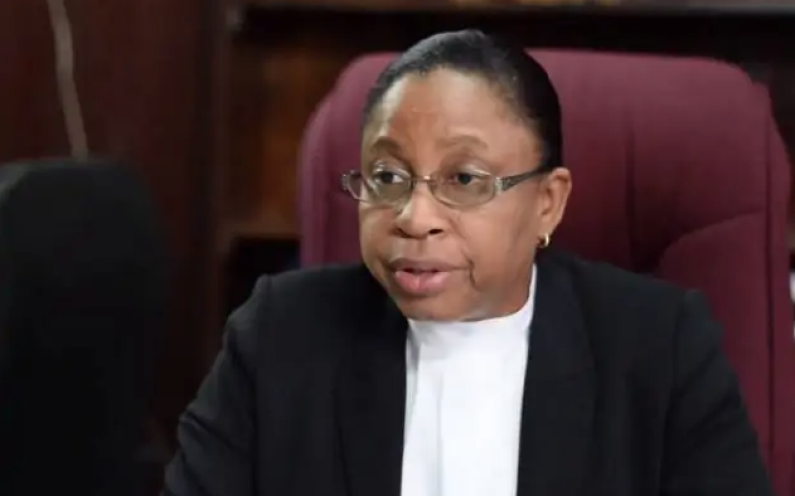
Chief Justice Roxane George has announced that she will hand down her ruling on the 23rd August as to whether the President acted unconstitutionally when he appointed Patrick Findlay as Chairman of the Police Service Commission (PSC) and also appointed members of the Integrity Commission.
Opposition Leader Aubrey Norton is challenging the constitutionality of the appointments on the basis that the President did not “meaningfully consult” with him as required by the Constitution.
The Attorney General has argued against that contention.
According to Article 210 of the Constitution, “the Police Service Commission shall consist of – a Chairman appointed by the President acting after meaningful consultation with the Leader of the Opposition from among members appointed” upon nomination by the National Assembly.
In a virtual hearing today, Senior Counsel Roysdale Forde, who is representing the Opposition Leader, told the High Court that though the consultative process was initiated by President Ali, the Head of State did not provide a rationale or criteria for his selection of Findlay as Chairman of the PSC over the three other nominees.
Maintaining that the President did not meet the constitutional requirements ahead of his appointments, Forde submitted that the Opposition Leader was only furnished with the Curriculum Vitae (CVs) of the nominees after a request was made during a meeting with the President in May, 2022.
“No other information whatsoever or no other piece of documentation whatsoever was provided by the President in the context of this consultation,” the Senior Counsel said while maintaining that the criteria ought to have been provided to Norton in order for him to contribute meaningfully to the process.
It was noted that one day before the appointments, the Opposition Leader, in a letter dated May 30, requested that the grounds for the recommendations and in response, was told by the Minister of Parliamentary Affairs Gail Teixeira, that there is no requirement for the President to do so.
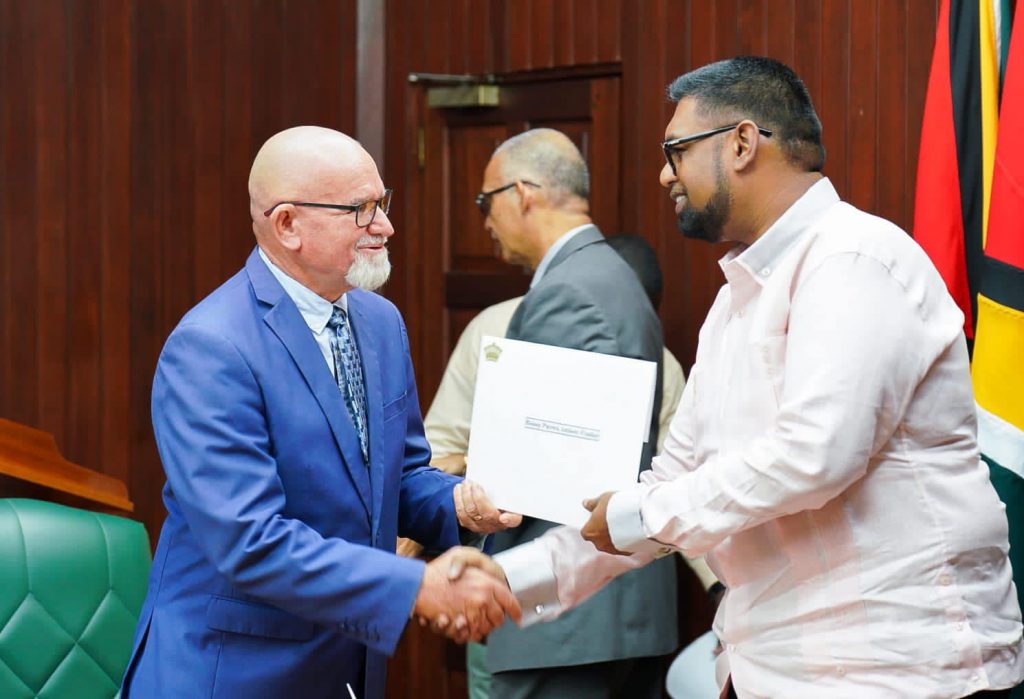
Forde submitted that “the failure of the President materially impaired the process of “meaningful consultation” and “consultation” and significantly inhibited the ability of the Leader of the Opposition to consider making any nomination of his own and to assess the nominees of the President in order to give a considered opinion.”
On the appointments of Chandra Gajraj, Dr. Kim Kyte-Thomas, Imaam Mohamed Ispahani Haniff, Pandit Hardesh Tewari and Reverend Wayne Bowman as members of the Integrity Commission, Forde also submitted that those appointments are also illegal due to lack of proper consultation.
Interjecting, the Chief Justice enquired whether Minister Teixeira’s indication in a letter dated May 12 that the nominees were “people of good standing” was a such reason for the appointments.
Though grilled on the matter, the Senior Counsel repeatedly responded in the negative, indicated that further grounds should have been provided.
The Attorney General, in his submission, told the Court that “overall the consultation has to be fair but it does not have to be perfect.”
In building his argument, the Attorney General reminded the Court that the four nominees for the Police Service Commission, including Mr. Findlay were nominated by the Appointments Committee of the National Assembly.
“Those names were vetted, examined and approved by the Appointments Committee of which the opposition members are apart,” he argued, while adding that the nominees were unanimously approved by the National Assembly.
The Chief Justice, however, indicated that while the four nominees for the Police Service Commission came from the National Assembly, the Constitution requires that there be meaningful consultation between the President and the Opposition Leader ahead of the appointment of the Chairman.
While agreeing with the Chief Justice, the Attorney General maintained that the President acted reasonably through the process which saw a number of exchanges between the two sides on the appointments of both Chairman of the PSC and members of the Integrity Commission.
It was pointed out that at the end of the high-level meeting on May 13, the Opposition Leader clarified that what he had required were the CVs of the nominees.
This, he said, was reflected in the joint statement, which was issued at the conclusion of the meeting.
Mr. Nandlall submitted further, that “belatedly” on May 30, the Opposition Leader requested grounds for the proposed appointments.
According to him, the Leader of the Opposition was given a fair opportunity to participate in the process.












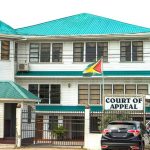
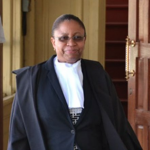
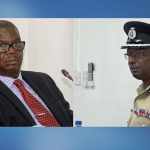
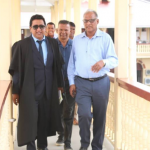


You must be logged in to post a comment Login